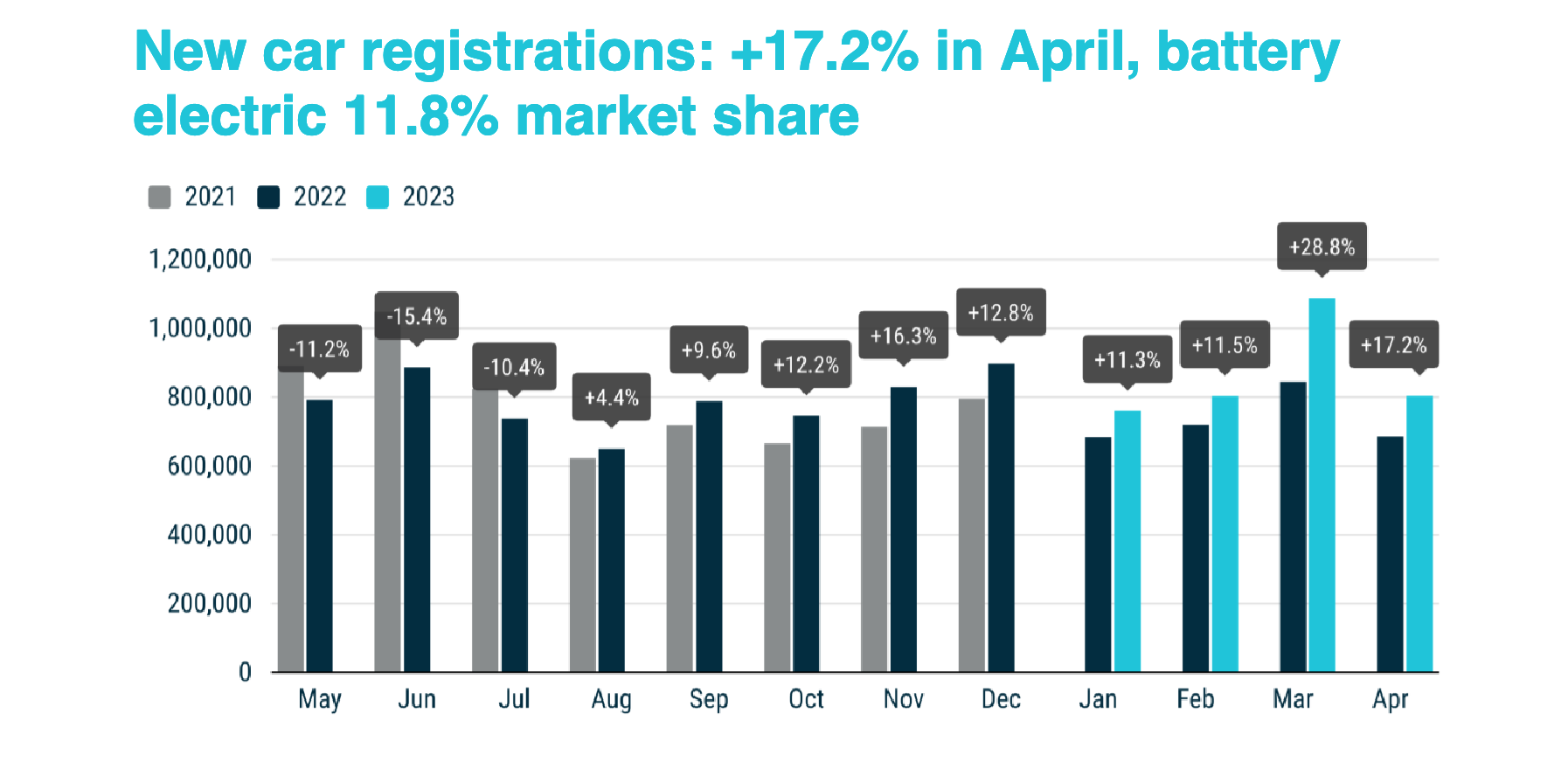
EU car registrations up again in April

In April, EU car sales rose by almost one fifth and the growth of electric car sales stays high /ACEA
In April 2023, the EU car market saw a significant increase in passenger car registrations, with 803 188 units sold, marking a 17,2% growth


Comments
Ready to join the conversation?
You must be an active subscriber to leave a comment.
Subscribe Today